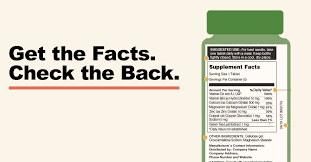Dietary supplements can provide our bodies with the essential vitamins, minerals, and nutrients that we need to maintain optimal health. Even when we eat a healthy diet, it can be difficult to get all the necessary nutrients through food alone. Supplements can help fill in the gaps and ensure that our bodies are functioning at their best. Here are some of the key reasons why dietary supplements are good for us:
- Prevent Nutrient Deficiencies: Many people do not consume enough vitamins and minerals in their diets, which can lead to deficiencies. These deficiencies can cause a range of health problems, from fatigue and weak immune systems to more serious conditions like anemia and osteoporosis. Supplements can help prevent these deficiencies and keep our bodies functioning properly.
- Support Overall Health: Taking dietary supplements can support overall health and well-being. For example, omega-3 supplements can improve heart health, while vitamin D can improve bone density and immune function. Antioxidants like vitamins C and E can help protect against cellular damage and may even reduce the risk of cancer.
- Improve Athletic Performance: Athletes and fitness enthusiasts can benefit from dietary supplements to improve their performance. Creatine, for example, can help increase muscle mass and strength, while caffeine can improve endurance and focus.
- Address Specific Health Conditions: Some supplements are designed to address specific health conditions. For example, probiotics can improve gut health and may help alleviate symptoms of digestive disorders like irritable bowel syndrome (IBS). Glucosamine and chondroitin supplements can help relieve joint pain in people with osteoarthritis.
- Convenient and Cost-Effective: Taking dietary supplements can be a convenient and cost-effective way to improve your health. Instead of buying expensive, nutrient-rich foods or taking prescription medications, you can often get the same benefits from taking a daily supplement.
When to Take Dietary SupplementsWhile dietary supplements can provide many benefits, it’s important to use them properly. Here are some guidelines for when to take dietary supplements:
- Consult with a Healthcare Provider: Before starting any new supplement regimen, it’s important to consult with a healthcare provider. They can help you determine which supplements are appropriate for your needs and make sure they won’t interact with any medications you’re taking.
- Take as Directed: Always follow the directions on the supplement label. Taking too much of a supplement can be harmful, while taking too little may not provide any benefits.
- With Meals: Some supplements are best taken with meals to improve absorption. For example, taking vitamin D with a meal that contains healthy fats can help improve absorption.
- As Needed: Some supplements, like vitamin C, are water-soluble and are quickly excreted from the body. These can be taken as needed throughout the day to maintain optimal levels.
In conclusion, dietary supplements can provide a range of benefits for our health and well-being. From filling nutrient gaps to addressing specific health conditions, supplements can be a convenient and cost-effective way to support our bodies. However, it’s important to use supplements properly and under the guidance of a healthcare provider. This includes consulting with a healthcare provider to determine which supplements are appropriate for our individual needs, taking supplements as directed, and being mindful of potential interactions with other medications.
While supplements can be helpful, they should not be seen as a replacement for a healthy diet and lifestyle. It’s important to eat a balanced diet that includes a variety of nutrient-rich foods, engage in regular physical activity, and get enough sleep and stress management. By combining healthy habits with appropriate supplement use, we can give our bodies the support they need to function at their best.





